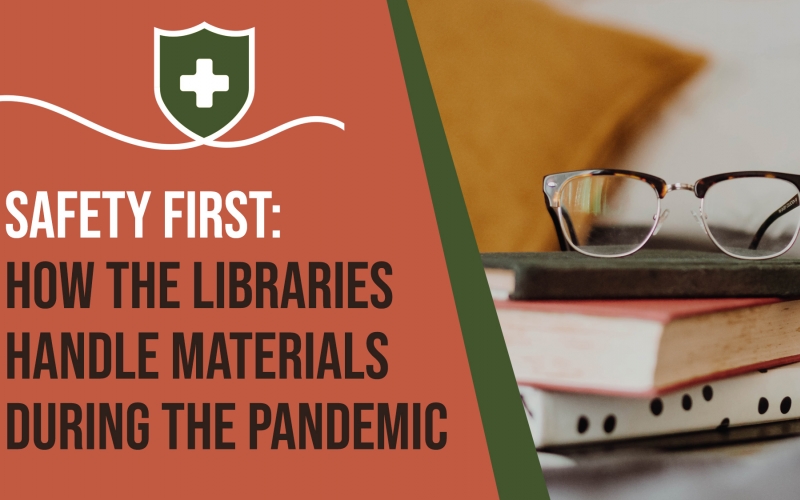March 3, 2021
Like the rest of campus, NDSU Libraries have made numerous adjustments to their operations due to the COVID-19 pandemic. Face coverings, hand sanitizer, and signs reminding users to practice social distancing have become the norm throughout our facilities, and our staff members devote a significant amount of time to cleaning and sanitizing public spaces. Our extensive array of online resources and services allow users who are not able to come to campus to keep up with their studies and research. However, a significant number of the resources our users need are physical items like books, archival materials, and DVDs that are not otherwise available online. When the pandemic started last March, libraries throughout the country were faced with a dilemma – how could they make physical items safely available to their users while limiting the spread of the COVID-19 virus?
At the time, no one knew whether or how long the virus lived on library materials. Worse, the cleaning supplies commonly used to sanitize tables, computers, and other library equipment would damage or destroy anything made of paper. Enter the REopening Archives, Libraries, and Museums (REALM) project, an Institute of Museum and Library Services (IMLS)–funded collaboration between the global library cooperative OCLC and the research and development organization Battelle. Since last spring, the REALM project has been conducting a series of tests to determine how long the SARS-CoV-2 virus survives on materials common to libraries, archives, and museums. Their findings show that survival time of the virus varies widely depending on the type of material and how it is stored, ranging from one day for unstacked books and DVDs to 6+ days for stacked materials. As a result, the consensus amongst the library and archives community is to quarantine items that have been handled by users to ensure the virus is no longer active.
In the Main Library, materials returned to the Circulation Desk are quarantined for 24 hours. Staff members wear gloves when handling incoming materials, which are laid flat when quarantined rather than stacked. Once the quarantine period is over the materials are processed and returned to the stacks. Materials on course reserve must also be quarantined after use, but many faculty members were able to provide extra copies of materials to ensure availability. If a student needs to use an item before the quarantine period is over, Circulation staff will provide gloves so the item can be handled safely. One of the unexpected benefits of these new procedures is that the student employees have become much more aware of materials handling issues and would like to continue wearing gloves even after the pandemic is over. According to Cate Kratochvil, Head of Access Services, “Everyone has been much healthier than normal due to the sanitation measures – the students have been surprised by the difference that makes.”
At the NDSU Archives, donated materials are held in a quarantine room for up to two weeks. Donors are asked to bring their materials into the building, where a single staff member does the initial intake before moving the items to the quarantine room. Once the materials are ready for processing, a single staff member handles a particular collection so it does not have to be quarantined again. Items that are handled by researchers are quarantined for a week but can be handled by the same researcher before the quarantine period is up if necessary. Researchers are asked to wash their hands prior to using the collections rather than use hand sanitizer, which can damage fragile archival materials. Processing Archivist Matt Tallant feels this process works well for both staff members and users. “Everyone wears masks, washes their hands, and practices social distancing. Having a reservation system for researchers so we can prepare collections for their visit helps a lot.”
NDSU Libraries are committed to protecting the health of our users and staff during the ongoing COVID-19 pandemic while continuing our mission to energize and advance research, teaching, and learning in an evolving information environment. For more information about the REALM project, visit www.oclc.org/realm/home.html.

